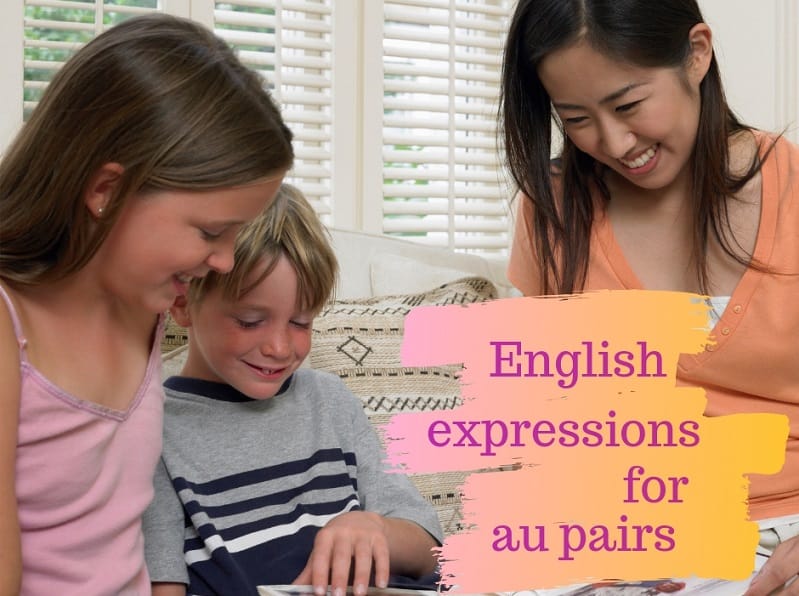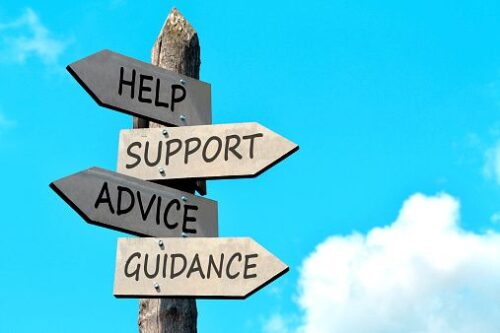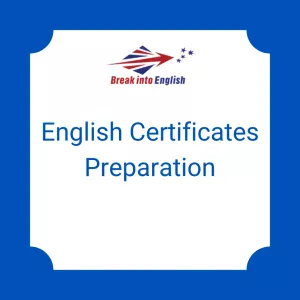If you are thinking of spending some time in the UK as a nanny, this is your basic survival list of English expressions for au pairs! This article is useful if you are going to look after children in English anywhere in the world but bear in mind that some phrases differ in American English for example. As an au pair in the UK, you will probably have to take care of the morning routine which means, breakfast, getting dressed, teeth, hair, and school run. Here are some phrases you will certainly need in the morning, and you will probably hear yourself repeating until you go crazy!
English Expressions for au pairs of school-aged children
Most families start the day with these words “Wakey wakey rise and shine, time to get up!” “Wakey wakey” comes from ‘wake up’ and is a very informal version of the imperative form. “Rise and shine” is comparing the child to the sun, it means get up and be amazing :) [Time to + verb] or [time for + noun] is a great way to say that we have to do something now.
Breakfast expressions
“Time for breakfast” – again that [time for + noun] expression. “Come along” or “come on then” means follow me, or come this way – usually to tell the children to come to the kitchen for breakfast. Kids in the UK normally have toast or cereal (both words are always singular because they are uncountable nouns) with a glass of milk or drinking chocolate. If you are going to offer the choice, you need to ask questions with such as “Would you like toast or cereal today?”. When the kids are frustratingly slow or taking too long a great au pair will have some typical English expressions like “chop chop” or “hurry up” under his or her belt. More specifically for food-related hurries, we can say “eat up” or “finish up quickly”
General mealtime expressions
Obviously meal times can be messy so you might need these imperative phrases to keep the kitchen table in order: “Don’t speak with your mouth full”, I mean seriously it can be hard enough to understand little native speakers, this English expression for au pairs makes sure you don’t have a disadvantage at least! On the topic of full, -Ful (with only one ‘L’) is a useful mealtime suffix, it means ‘as much as will fill’. So you can talk about a bowlful of cereal, a spoonful of sugar, a handful of nuts or a mouthful of juice etc. Remember that we say to “have a meal” in English. A common mistake is to say ” to breakfast” or ” to lunch”. This is incorrect.
English expressions for au pairs for getting dressed
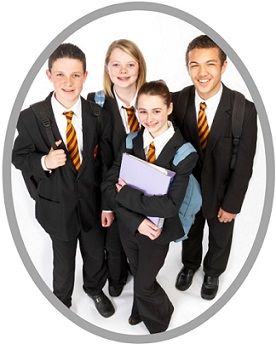 Most (90%) school children in the UK have to wear a uniform, if not you will probably have to help them choose their outfits.
Most (90%) school children in the UK have to wear a uniform, if not you will probably have to help them choose their outfits.
School uniform items:
Sweatshirt, trousers, shirt (for boys) blouse (for girls), skirt/kilt (the word depends on the style) blazer and tie.
Getting dressed verbs and expressions:
Here is a list of phrases that you will need for the morning routine working as an au pair, in order:
- Change your pants, and get some clean socks
- Put your socks on.
- Are you trousers the right way around?
- Your T-shirt is on inside out!
- The label goes at the back or on your right-hand side.
- Do you need any help with your buttons?
- Shall I button your shirt up?
- Tuck your shirt in.
- Zip up your coat.
Cleaning teeth in the morning:
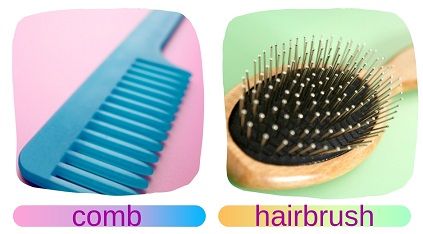 After breakfast children should clean their teeth for at least three minutes, you might need to say “I’ll time you” and start the clock by saying “Ready, steady…GO!” You should make sure that they the clean all parts of their mouth: teeth at the front, teeth at the back, the insides of their cheeks and their tongues. Remember that in English we do not say “inside the mouth” or “clean the tongue”, we use the pronoun “your tongue”, “my teeth” etc.
After breakfast children should clean their teeth for at least three minutes, you might need to say “I’ll time you” and start the clock by saying “Ready, steady…GO!” You should make sure that they the clean all parts of their mouth: teeth at the front, teeth at the back, the insides of their cheeks and their tongues. Remember that in English we do not say “inside the mouth” or “clean the tongue”, we use the pronoun “your tongue”, “my teeth” etc.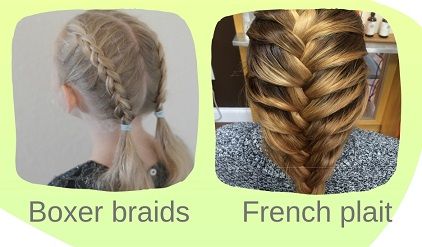
Doing hair:
A boy might put hair gel in his hair, or maybe wax hair products, for girls, hair things are more complicated. You can use a comb or a brush (noun) to comb or brush their hair (again, not “the hair”). Girls wear their hair up by using bobbles and clips. A single bobble is used to make a ponytail, which can be high or low, and you need two bobbles to make pigtails. Plaiting or braiding is when you twist several strands of hair together, girls might ask you to do a French plait or boxer braids (both are useful English expressions for au pairs). These two hairstyles take a long time to get perfect – so it’s probably not a good idea to plait or braid in the morning.
English expressions for au pairs related to the school run
The school run is when parents or the au pair drop the children off at school in the morning and pick them up in the afternoon. If you have to take the kids in the car you should make sure that they sit in the back of the car, not on the front seat. They should use a child seat or a booster seat if they are under 12. If the child uses a child seat you will normally have to strap them in, whereas older children normally fasten their own seat belts. However, you can check by saying “buckle up” or “have you got your seatbelts on?”. If you walk the kids to school, you might need the expressions “you go on ahead” or “I’ll catch you up”. Both expressions mean that you want them to continue, not wait for you. On the other hand, you can tell children who are going slower than you to “keep up”, while if they get too far behind, you can shout to them to “catch up!”
Phrasal verbs and English expressions for au pairs
Phrasal verbs are a great way of keeping your instructions friendly and familiar. The non-phrasal verb alternative can sound harsh and strict, something that every au pair would want to avoid! Some examples are “hang on a minute” rather than “wait” or “eat up” rather than “eat”. We can use the word then to soften further the imperative form and to show that you are being permissive, encouraging or friendly for example “Come on then!” or “Bring it here then” If you can think of any more English expressions for au pairs that you would like to add to this list – just leave us a comment below! PS. Did you know that Au pairs in the UK are entitled to attend a language course? Have you considered taking classes online? Why not try a free class with Break into English

